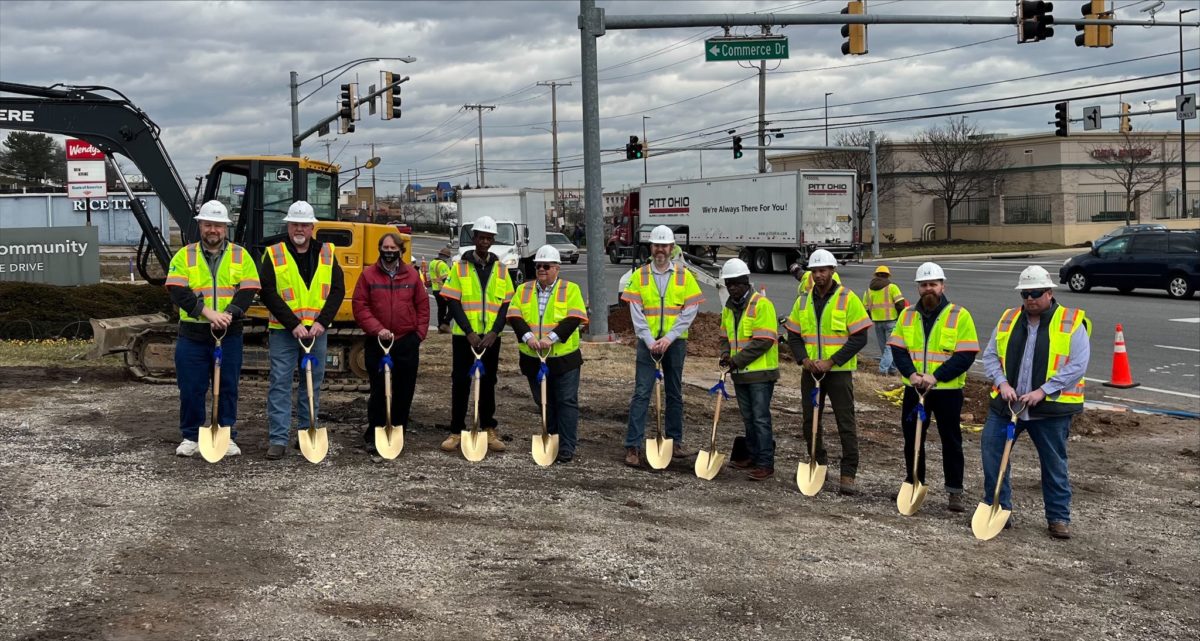Baltimore-based broadband infrastructure company Harbor Link is constructing a 60-mile diverse conduit route between Baltimore, DC and Northern Virginia down the I-95 corridor. The project will allow increased access to high-speed landline internet in communities and businesses along this route.
The infrastructure company is putting in dark fiber, an industry term for fiber optic cable without a service provider. Think of it as a building constructed without an owner to manage rentals or tenants. Founding partner and Chief Strategy Officer Felix Dialoiso told Technical.ly he likens it to creating a toll road that internet service providers like Comcast and other broadband infrastructure companies like Crown Castle drive on to deliver service.
It’s the latest infrastructure investment for an ongoing issue facing the region.
The high cost of laying down these cables in rural communities or the more disenfranchised parts of Baltimore is why there’s poor or no internet connectivity in these areas. Fixed wireless ISPs like Bridgemaxx or community-based mesh networks like Project Waves step in and fill the gaps.
Broadband infrastructure has been a major investment of the Biden administration, with $65 billion allocated for broadband in the Infrastructure Investment and Jobs Act, along with the $300 million Maryland has allocated for broadband from the the American Rescue Plan. These investments in infrastructure is a primary reason Maryland rose so high in CNBC’s America’s Top States for Business list in 2021.
Looking beyond this project, Dialoiso said he wants to bring the same amount of dark fiber expansion to the city of Baltimore. This could help the city deal with the increased pressure on its broadband infrastructure amid the transition to remote work many companies, the government and schools have made. His goal is to expand the city’s 700-mile network of ducts that house wiring for electric and communications services that both BGE and Comcast use by 70 miles. That 70 miles would exclusively be used for broadband, cutting down on outages and fires on the cables, according to the CSO, as they won’t be doing double duty of electric and communications.
“The pandemic has driven [the industry],” he said. “We want to open up the capacity to the source supply in order to build out to all these areas of Baltimore that are struggling.”
But before that Baltimore plan could get underway, Dialoiso wants the six years left on his current franchise agreement with the city, which he said was put in place back in the Martin O’ Malley administration, renegotiated.
The project on I-95 is expected to be finished in the first quarter of 2023.

(Courtesy image)
Join our growing Slack community
Join 5,000 tech professionals and entrepreneurs in our community Slack today!
Donate to the Journalism Fund
Your support powers our independent journalism. Unlike most business-media outlets, we don’t have a paywall. Instead, we count on your personal and organizational contributions.

Mayor Bowser: Tech can help DC build a stronger, more self-sufficient economy

Comcast introduces ultra-low lag Xfinity internet that boosts experiences with Meta, NVIDIA and Valve

Maryland firms score $5M to manufacture everything from soup to nanofiber


